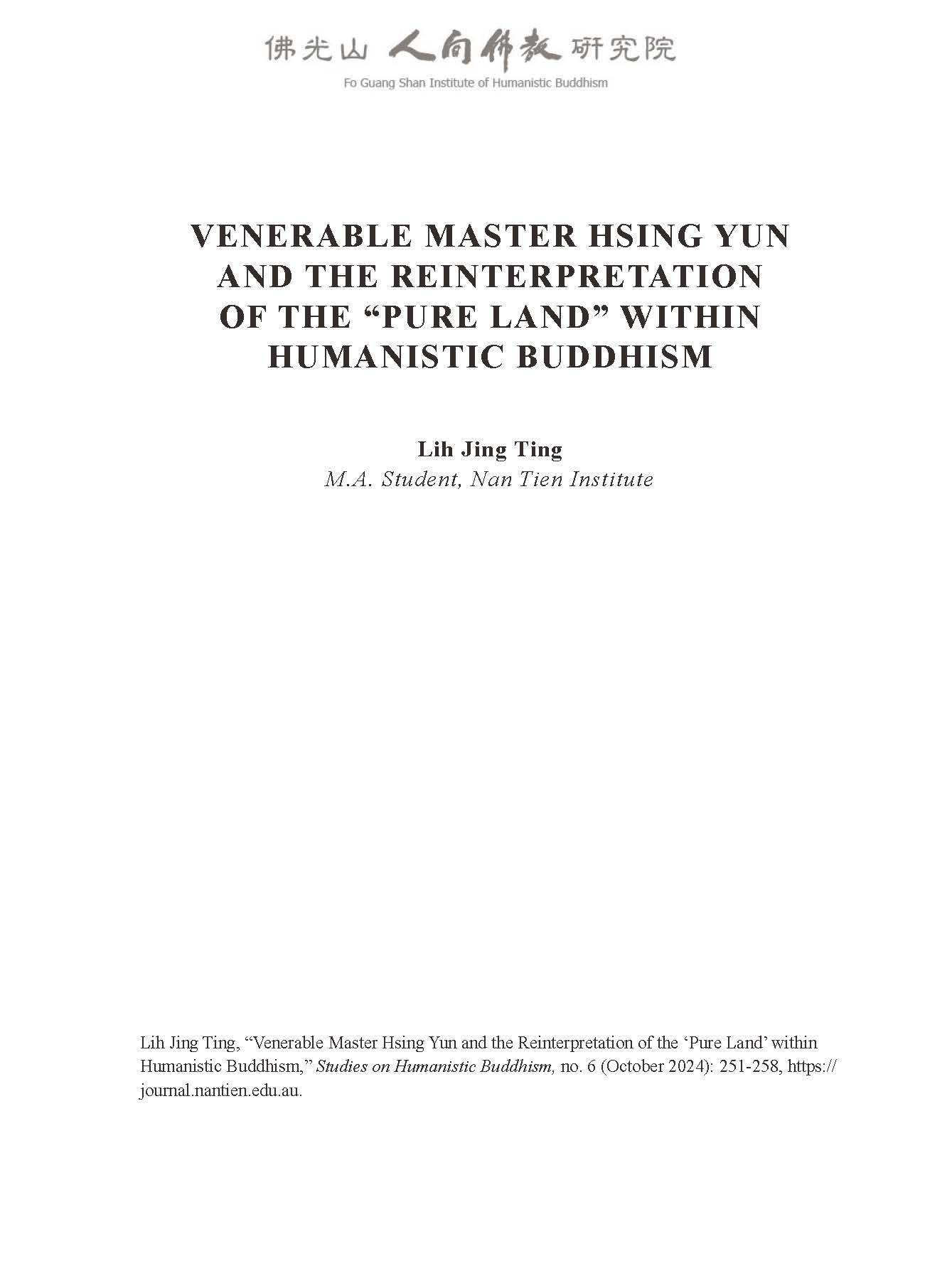
|
Venerable Master Hsing Yun and the Reinterpretation of the “Pure Land” within Humanistic Buddhism
作者
Lih Jing Ting
單位職稱
M.A. Student, Nan Tien Institute
摘要
This essay examines the teaching of Venerable Master Hsing Yun, one of the leading active proponents of Humanistic Buddhism. It begins by discussing the historical and contemporary status of Humanistic Buddhism, contextualizing it as a movement borne out of modernist influences and demands placed upon Buddhism to adapt and reform according to an everchanging social world. Venerable Master Hsing Yun’s notion of “the Pure Land,” a Buddhist concept he reinterprets as demanding the creation of an “earthly” Pure Land is examined. This interpretation, it is argued, is tied to pragmatic concerns regarding the necessity to reform Buddhist practices in
order to successfully spread Buddhist teachings in the modern world. The essay draws parallels between the example of socially engaged practices of Christian missions at the turn of the century in China and the rationale underlying the drive to reform among nascent Humanistic Buddhists, such as in the teaching of Master TaiSxu. The example of Venerable Master Hsing Yun’s advocacy for creating an “earthly” Pure Land demonstrates how contemporary Humanistic Buddhist theory follows this logic and interprets traditional Buddhist teachings as advocating for socially engaged practices among both monastics and laypeople. To this end, Venerable Master Hsing Yun’s teaching regarding “life education” reinterprets spiritual development as practices designed to improve the external world rather than solely the individual’s internal world. This is demonstrated in Fo Guang Shan’s strategy of spreading Buddhism in mainland China through cultural education and activities rather than proselytization.
引文
Lih Jing Ting,Studies on Humanistic Buddhism VI : Humanistic Buddhism: Wisdom and Compassion in Action(2024)251-258.
全文下載











